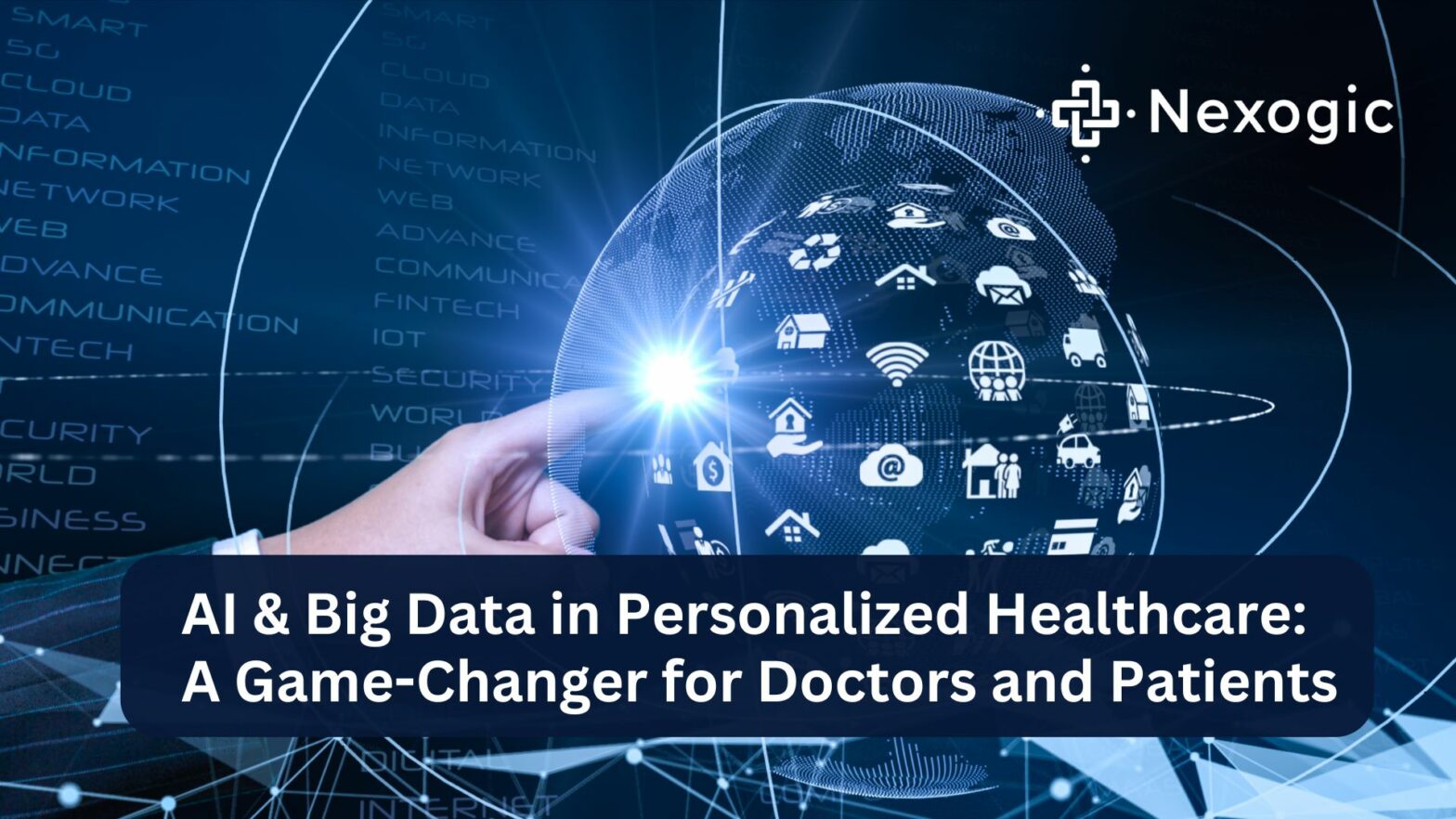AI & Big Data in Personalized Healthcare: A Game-Changer for Doctors and Patients
- May 20, 2025
- Nexogic

AI & Big Data in Personalized Healthcare: A Game-Changer for Doctors and Patients
In the age of digital transformation, healthcare stands at the cusp of a major evolution. Two powerful technologies Artificial Intelligence (AI) and Big Data are not just enhancing medical processes but fundamentally reshaping how care is delivered.
The Rise of Personalized Healthcare
Traditional healthcare often follows a one-size-fits-all model. However, every patient is unique genetically, behaviorally, and environmentally. Personalized healthcare aims to tailor medical decisions, practices, and therapies to the individual patient, based on data-driven insights.
How Big Data Fuels Precision Medicine
Big Data in healthcare encompasses vast amounts of patient data, including:
Electronic Health Records (EHRs)
Lab results and imaging reports
Genomic sequences
Wearable device metrics
Lifestyle and behavioral data
By aggregating and analyzing this information, clinicians can identify patterns, predict risks, and make informed decisions faster.
For example, Big Data analytics can:
Predict the onset of chronic conditions like diabetes or heart disease
Monitor post-surgical recovery through wearable data
Identify population health trends for preventive care strategies
AI: The Brain Behind the Data
While Big Data provides the raw material, AI acts as the brain that interprets it. Machine learning algorithms can analyze massive datasets in real-time, recognizing patterns that may be invisible to the human eye.
Key Applications of AI in Personalized Healthcare
Early Diagnosis: AI can detect diseases like cancer in early stages from imaging scans or lab results with high accuracy.
Treatment Recommendations: AI systems like IBM Watson can suggest personalized treatment options by analyzing medical literature and patient history.
Predictive Analytics: Machine learning models forecast disease progression and hospital readmissions.
Virtual Health Assistants: Chatbots and AI tools provide medication reminders, symptom checks, and health advice in real-time.
Benefits for Doctors and Healthcare Providers
Efficient Decision-Making: AI tools reduce diagnostic time and help prioritize critical patients.
Reduced Burnout: Automation of administrative tasks allows doctors to focus on patient care.
Improved Outcomes: With precise, timely data, treatment plans are more effective and targeted.
Benefits for Patients
Tailored Treatments: From personalized cancer therapies to diet recommendations based on genetics, patients receive more relevant care.
Faster Recovery: Continuous monitoring through wearables ensures proactive intervention.
Better Engagement: AI-powered apps and dashboards keep patients informed and motivated.
Challenges & Ethical Considerations
Here, the advantages are clear and the challenges to address:
Data Privacy: Ensuring the security of sensitive medical data is paramount.
Bias in the Algorithms: Artificial Intelligence systems must be trained on different datasets to avoid skewed results.
Doctor-AI Collaboration: AI should complement, not replace, the expertise of medical professionals.
The Future is Now
AI and Big Data are not just future technologies they are transforming healthcare today. As we move forward, integrating these tools into everyday clinical workflows will be essential for delivering truly personalized, proactive, and patient-centric care.
Healthcare providers, startups, and policy-makers must work together to harness this potential responsibly. For doctors and patients alike, the future of medicine is smarter, faster, and more personal than ever before.
Are you a medical professional ready to embrace the future of healthcare? Platforms like Nexogic empower medical professionals to stay ahead with digital tools, AI-powered insights, and connected communities. Join the movement today.


